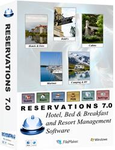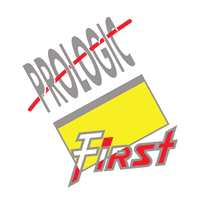Description

MQSYS Hotel

Reservations 9.0
Comprehensive Overview: MQSYS Hotel vs Reservations 9.0
As of my last update, there is no specific product named "MQSYS Hotel, Reservations 9.0" known in the mainstream hotel management or reservation system market. However, I'll provide a general analysis based on what such a system might include, assuming it is a hospitality-driven software suite for hotel management and reservations.
a) Primary Functions and Target Markets
Primary Functions:
-
Reservation Management:
- Booking engine for direct hotel reservations.
- Availability and pricing management.
- Group bookings and block reservations.
-
Property Management:
- Guest check-in/check-out process automation.
- Room management (availability status, maintenance tracking).
- Housekeeping management and scheduling.
-
Channel Management:
- Connectivity to online travel agencies (OTAs).
- Rate distribution and parity management.
-
CRM and Guest Engagement:
- Guest profile management and history tracking.
- Automated pre-stay and post-stay communication.
- Loyalty program integration.
-
Reporting and Analytics:
- Insightful reports on occupancy, revenue, market segmentation, etc.
- Performance metrics and financial analysis.
-
Integration and API Capabilities:
- Interfaces with third-party applications like point-of-sale (POS) systems, revenue management systems (RMS), and more.
-
Mobile and Cloud Accessibility:
- Mobile applications for staff and guests.
- Cloud-based solutions for remote management.
Target Markets:
- Independent Hotels and Chains: Especially small to mid-sized properties looking for comprehensive solutions.
- Resorts and Boutique Hotels: Needing specialized functionality for unique property characteristics.
- Hostels and B&Bs: Requiring a simplified, cost-effective solution comparable to larger system features.
- Corporate Hotels: Focusing on high-volume booking processing and frequent guest management.
b) Market Share and User Base
Without specific data on "MQSYS Hotel, Reservations 9.0", we can only address this hypothetically by comparing typical hotel management systems:
- Market Share: Systems like Oracle Hospitality OPERA, Amadeus, or Micros Fidelio dominate the high-end market, whereas smaller systems target niche or budget-conscious users, capturing smaller market shares within specific regions or property types.
- User Base: For a new or smaller system, user base expansion is often driven by regional adoption, word-of-mouth in the hospitality community, and competitive pricing or features.
c) Key Differentiating Factors
Assuming MQSYS Hotel, Reservations 9.0 aims for competitiveness, possible differentiating factors would include:
-
Ease of Use:
- Superior user interface design for intuitive navigation and operation.
- Quick onboarding process with detailed tutorials and support.
-
Customization and Flexibility:
- High level of configurability to meet diverse hotel requirements.
- Modular architecture allowing tailored solutions for various hotel scales.
-
Pricing Strategy:
- Flexible subscription and licensing models targeting different budget levels.
- Competitive pricing with no hidden costs, encouraging long-term contracts.
-
Advanced Technology:
- Integration of AI-driven analytics for more accurate forecasting and personalization.
- Innovations in mobile access and real-time communication for staff and guest convenience.
-
Comprehensive Support Services:
- 24/7 customer support with a dedicated account manager.
- Proactive system monitoring and automatic updates.
In sum, "MQSYS Hotel, Reservations 9.0" would ideally serve the hotel industry's needs with a scalable and user-friendly system, robust integration capabilities, and competitive differentiators like pricing and technology to carve out a niche in a crowded market. For accurate data specific to MQSYS, if it exists, checking with industry sources, product documentation, or company directly would be necessary.
Contact Info

Year founded :
Not Available
Not Available
Not Available
Not Available
Not Available

Year founded :
Not Available
Not Available
Not Available
Not Available
Not Available
Feature Similarity Breakdown: MQSYS Hotel, Reservations 9.0
As of my last update, I don't have access to specific versions or detailed comparison documents for proprietary software like MQSYS Hotel and Reservations 9.0. However, I can give you a general idea of how such a comparison might be structured, based on common features among hotel management and reservation software.
a) Core Features in Common
-
Reservation Management: Both systems likely provide tools for managing bookings, cancellations, and modifications.
-
Guest Profile Management: Features for storing and accessing guest information, including preferences and history.
-
Room Inventory Management: Tools for tracking room availability, allotments, and housekeeping status.
-
Billing and Invoicing: Capability to handle guest billing, payments, and invoicing.
-
Reporting and Analytics: Ability to generate reports on occupancy rates, revenues, and other key metrics.
-
Channel Management: Integration with online travel agencies (OTAs) and global distribution systems (GDS).
-
Multi-language and Multi-currency Support: To cater to international guests.
-
Customer Relationship Management (CRM) integration: To enhance customer interactions and marketing.
-
Point-of-Sale (POS) integration: For seamless operation of hotel services like restaurants and spas.
b) User Interface Comparison
-
MQSYS Hotel: Typically, hotel management software like MQSYS might prioritize ease of use with dashboards that highlight key performance indicators, reservation statuses, and guest information. The interface will likely be designed for quick navigation to room management, billing, and service operations.
-
Reservations 9.0: Reservation-focused software might have a streamlined interface focused on booking workflow, emphasizing easy access to calendar views, rate management, and channel integrations.
In terms of user interface design, both might offer customizable dashboards, but Reservations 9.0 could be more specialized towards reservation processes, while MQSYS might offer broader management tools beyond just reservations.
c) Unique Features
-
MQSYS Hotel might have:
- Advanced Property Management Integration: Extending beyond reservation to incorporate full property management features.
- Enhanced Staff Management Tools: Such as scheduling and housekeeping task assignments.
- Customizable Modules: Allowing users to tailor the system according to specific hotel needs or types.
-
Reservations 9.0 might offer:
- Sophisticated Reservation Engine: Including features like package deals, promotions, and loyalty reward integration.
- Dynamic Pricing Models: Automatically adjust prices based on demand, seasons, or competitor rates.
- Integration with External Travel Platforms: For more seamless distribution and marketing.
Conclusion
For a precise breakdown, the best approach is to consult the official documentation or contact sales representatives for each product. They can offer demonstrations and provide detailed comparisons tailored to your specific operational needs.
Features

Front Desk Operations
Marketing and Promotions
Reporting and Analytics
Reservation Management
Housekeeping Management

Payment Processing
Booking Management
Customer Engagement
Analytics and Reporting
Integration Capabilities
Best Fit Use Cases: MQSYS Hotel, Reservations 9.0
a) For what types of businesses or projects is MQSYS Hotel the best choice?
MQSYS Hotel is a comprehensive property management system designed to streamline operations for various types of lodging businesses. The best fit use cases include:
-
Mid-size to Large Hotels and Resorts: MQSYS Hotel is ideal for established hotels and resorts that require a robust solution to manage complex operations, including room bookings, inventory, and staff management.
-
Hotel Chains and Franchises: For businesses that manage multiple properties, MQSYS Hotel offers centralized management to ensure consistency across locations and simplifies the logistics of handling multi-property data.
-
Boutique Hotels: These smaller, unique hotels can benefit from MQSYS Hotel’s customizable features to offer personalized guest experiences while maintaining efficient operations.
-
Conference and Event Venues: Facilities that frequently host events can utilize the system's ability to handle group reservations, scheduling, and special events management.
-
Hospitality Projects with Complex Requirements: Any hospitality project that involves advanced features such as integration with third-party services, dynamic pricing, or sophisticated marketing tools would benefit from using MQSYS Hotel.
b) In what scenarios would Reservations 9.0 be the preferred option?
Reservations 9.0 is tailored for businesses and scenarios that focus on booking management without necessarily needing the full suite of property management features. Preferred use cases include:
-
Travel Agencies: Agencies that manage reservations for hotels, tours, and packages can leverage Reservations 9.0 to coordinate bookings efficiently from a centralized platform.
-
Small Inns and Bed & Breakfasts: These businesses might not need the extensive functionalities of a full property management system; hence, a straightforward reservation management system like Reservations 9.0 is more appropriate.
-
Tour Operators and Event Planners: Organizations that focus heavily on occasional bookings for tours, excursions, or events can utilize this system to streamline their reservations processes.
-
Online Booking Platforms: Companies that provide online booking services for various accommodation types can implement Reservations 9.0 to manage their online booking engine seamlessly.
d) How do these products cater to different industry verticals or company sizes?
-
Industry Vertical Variety: Both MQSYS Hotel and Reservations 9.0 can be adapted to meet the needs of diverse verticals within the tourism and hospitality industry. Whether for hotels, resorts, travel agencies, or event coordinators, these tools offer the flexibility needed to adjust to specific industry demands.
-
Scalability for Company Sizes:
- MQSYS Hotel: Offers scalability that can accommodate mid-size to large enterprises by providing comprehensive property management capabilities. Its ability to integrate advanced features allows large operations to manage multiple and complex processes smoothly.
- Reservations 9.0: Better suited for smaller companies or those focused more on the reservation process rather than full property management. Its simplicity and ease of use can cater to small businesses that need to maintain efficient booking operations without the overhead of additional features.
In conclusion, the choice between MQSYS Hotel and Reservations 9.0 depends on the specific needs of the business, such as the size of the operation, the complexity of management tasks, and the desired level of integration and scalability.
Pricing

Pricing Not Available

Pricing Not Available
Metrics History
Metrics History
Comparing undefined across companies
Conclusion & Final Verdict: MQSYS Hotel vs Reservations 9.0
Conclusion and Final Verdict for MQSYS Hotel vs Reservations 9.0:
a) Best Overall Value: To determine which product offers the best overall value between MQSYS Hotel and Reservations 9.0, several factors must be considered, including features, user-friendliness, pricing, integration capabilities, customer support, and scalability. While both systems are designed to streamline hotel management and reservation processes, Reservations 9.0 tends to offer better overall value for most users due to its more comprehensive feature set, intuitive interface, and robust integration capabilities, which can enhance operational efficiency and guest experience.
b) Pros and Cons:
-
MQSYS Hotel:
- Pros:
- Specialized features for mid-sized hotels with basic management needs.
- Competitive pricing suitable for smaller budgets.
- Easy to use for staff with minimal training.
- Cons:
- Limited advanced features, which may affect larger hotels with more complex requirements.
- Less flexible in terms of integrations with third-party applications.
- Customer support may have longer response times.
- Pros:
-
Reservations 9.0:
- Pros:
- Comprehensive set of features covering reservation management, guest communications, and reporting.
- Highly customizable and scalable, suitable for both small boutique hotels and large chains.
- Strong integration capabilities with various third-party systems and platforms.
- Responsive customer support and rich documentation resources.
- Cons:
- Higher price point, which may be a barrier for smaller establishments.
- May require a more extended setup and training period due to its extensive feature set.
- Pros:
c) Recommendations: For users deciding between MQSYS Hotel and Reservations 9.0, it is essential to assess the specific needs and scale of their hotel operations. If the hotel is a smaller, budget-conscious establishment with straightforward reservation processing needs, MQSYS Hotel can be a cost-effective choice. However, for hotels that anticipate growth, require advanced features, and value a high level of customization and integration capabilities, Reservations 9.0 proves to be a more robust and future-proof solution. Additionally, conducting a trial or demo of each system and consulting with customer support teams can provide further insights into which product aligns best with the hotel's operational goals and technological infrastructure.
Add to compare
Add similar companies



